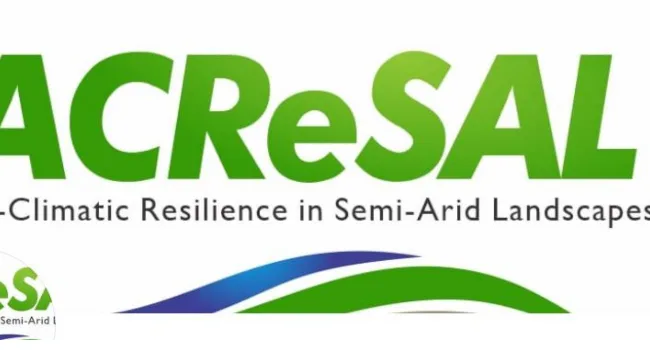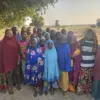The Federal Government, through the Agro-Climatic Resilience in Semi-Arid Landscapes (ACReSAL) project, has announced plans to restore one million hectares of degraded land in Northern Nigeria.
The initiative was unveiled during a stakeholders’ engagement session on the ‘Development of Strategic Catchment Management Plans in Wetland Zones of Northern Nigeria’ in Kano on Friday.
Speaking at the event, Abdulhamid Umar, National Project Coordinator of ACReSAL, said the restoration project is aimed at transforming degraded lands in Northern Nigeria into productive, habitable, and cultivable spaces.
He highlighted that this marks the first time the Nigerian government is undertaking a catchment management plan of this scale.
“This is the first time the Nigerian government is developing a catchment management plan of this magnitude,” Umar stated. “This assistance is being received with the guidance of the World Bank through the International Development Association.”
The workshop, which drew stakeholders from regions such as Ngada West Chad, Yedseram-East Chad, Hadejia, and Katagun K-Gana catchments, focused on fostering a collaborative approach toward an ideal riparian catchment. Participants came from states including Borno, Yobe, Jigawa, Bauchi, and Kano.
Umar noted that the catchment management plans are integral to the success of the ACReSAL project.
“The strategic plan will facilitate ACReSAL to meet its Project Development Objective (PDO),” he explained.
“This will help in sustainably restoring one million hectares of degraded land, making them cultivable, habitable, and usable for any other purpose, be it commercial, domestic, or otherwise.”
He also emphasised the project’s aim to directly benefit 3.4 million people, with nearly half of those being women.
“ACReSAL seeks to impact 3.4 million direct beneficiaries, out of which 1.68 million (49.41 per cent) would be women,” Umar added.
The project’s strategic catchment management plans will enable the integration of social and economic needs with natural ecosystems, ensuring the long-term use of natural resources.
“Catchment management plans not only provide answers to what, when, and where of catchment management, they also provide scientifically guided decisions for early strategies to avert potential environmental challenges,” Umar remarked.
He explained that the plans would set the foundation for sustainable landscape management across five major hydrological areas in Northern Nigeria.
“The ultimate goal of ACReSAL’s Strategic Catchment Plan is to strengthen the entire country’s long-term enabling environment for integrated climate-resilient landscape management,” Umar said.
In his remarks, Chuka Offodile, Managing Director of Mecon Geology and Engineering Services Ltd, assured stakeholders that the data gathered would guide both government and private entities interested in investing within the developed catchment areas.
“The development of the plan will help address the critical issue of food production and food security, which remains a top priority for the Federal Government,” Offodile stated.
The stakeholders present praised the Federal Government’s efforts, expressing optimism about the project’s potential to transform the region’s landscape.
One participant said, “This initiative will make lands in the frontline states cultivable, habitable, and usable, which is a great step toward addressing our environmental challenges.”
The ACReSAL project, funded with the support of the World Bank, is expected to significantly enhance agricultural productivity and environmental sustainability in Nigeria’s semi-arid regions.


